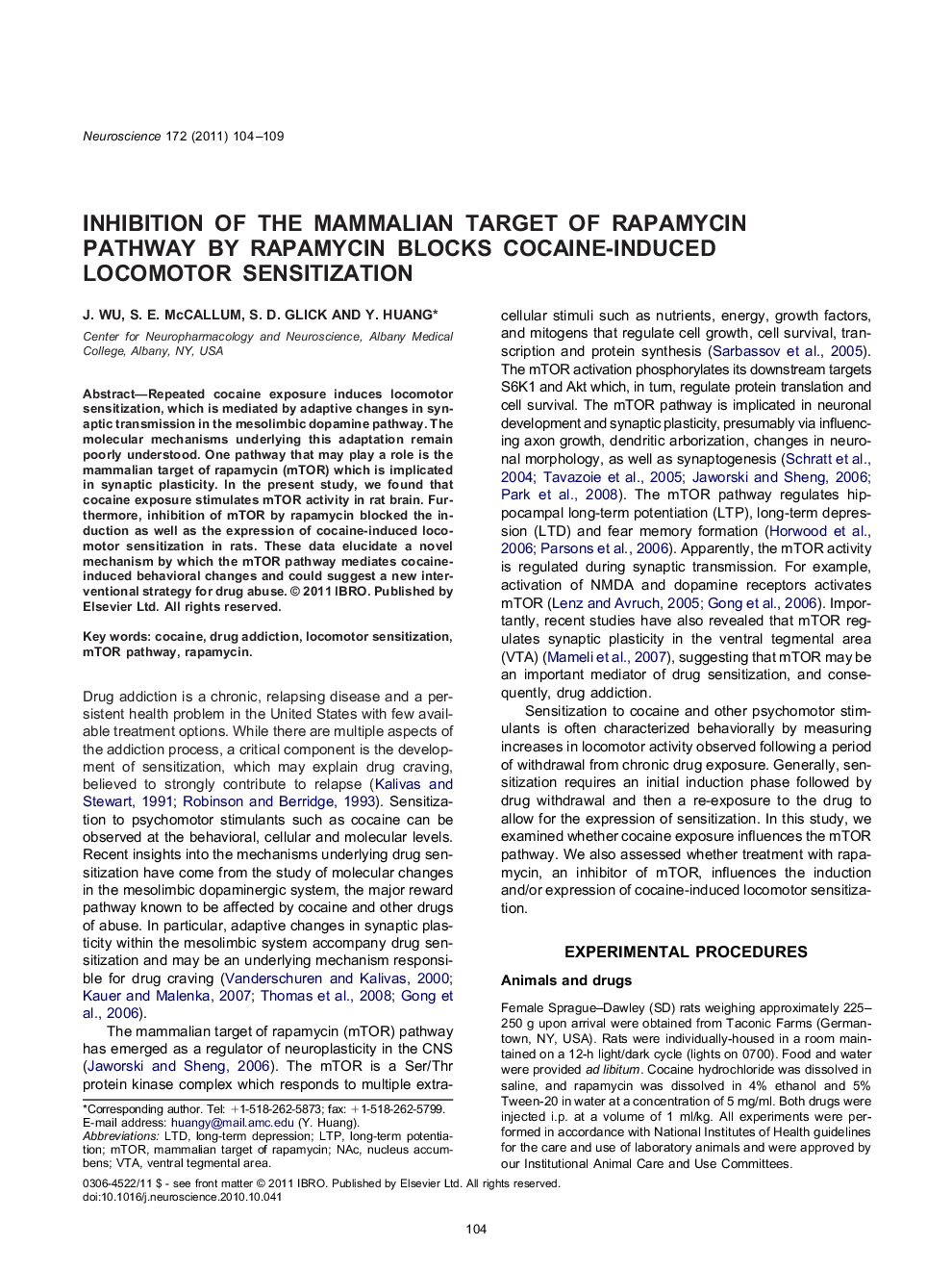| Article ID | Journal | Published Year | Pages | File Type |
|---|---|---|---|---|
| 4339030 | Neuroscience | 2011 | 6 Pages |
Repeated cocaine exposure induces locomotor sensitization, which is mediated by adaptive changes in synaptic transmission in the mesolimbic dopamine pathway. The molecular mechanisms underlying this adaptation remain poorly understood. One pathway that may play a role is the mammalian target of rapamycin (mTOR) which is implicated in synaptic plasticity. In the present study, we found that cocaine exposure stimulates mTOR activity in rat brain. Furthermore, inhibition of mTOR by rapamycin blocked the induction as well as the expression of cocaine-induced locomotor sensitization in rats. These data elucidate a novel mechanism by which the mTOR pathway mediates cocaine-induced behavioral changes and could suggest a new interventional strategy for drug abuse.
Research Highlights▶ Acute cocaine exposure activates the mTOR in the cortex, VTA, and NAc. ▶ Inhibition of mTOR blocks the induction of cocaine-induced locomotor sensitization. ▶ Inhibition of mTOR blocks the expression of cocaine-induced locomotor sensitization.
